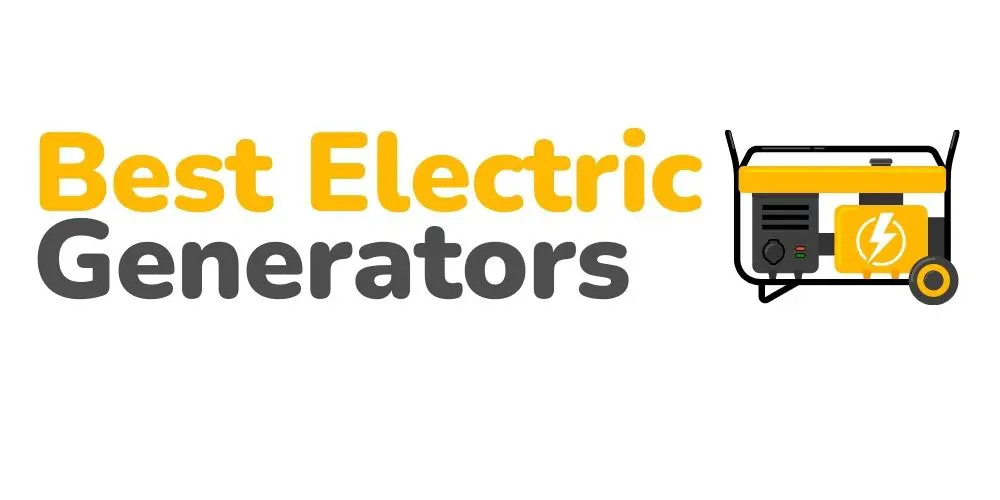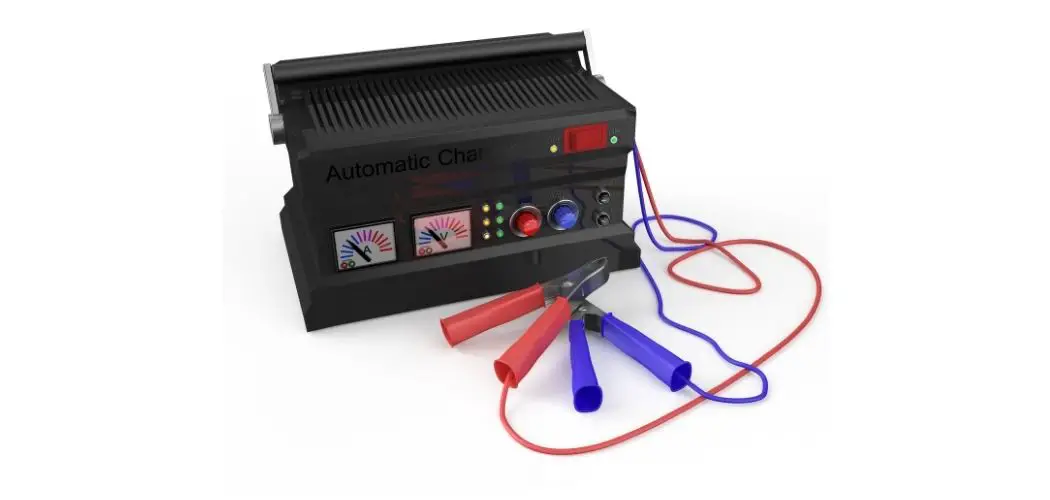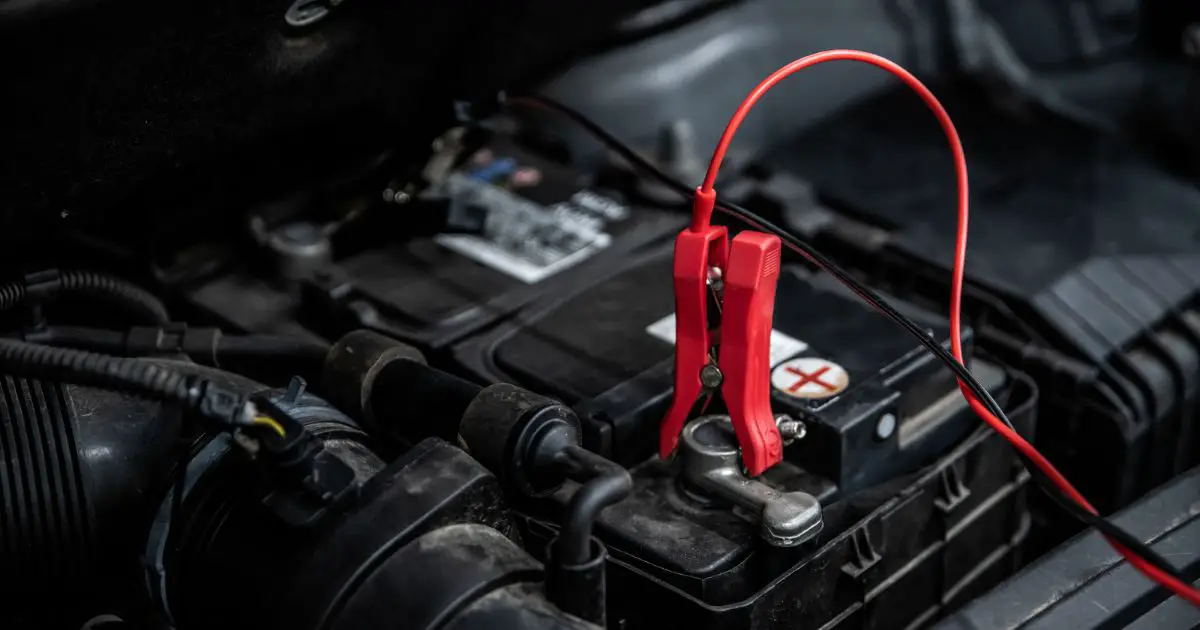A generator can charge not only battery charge but all types of batteries as well.
When equipped with the correct charger, you can use it to charge the backup system at your home. Or even your car’s battery if it goes flat.
The Importance of Battery Specification:
The type and specification of the battery are important whenever charging it. They have a different maximum charging volts or currents. Due to the ignorance of battery specifications, many charging problems occur.
Batteries are a combination of different chemicals, charging them with chemical reactions inside them. Each battery will have its chemical reactions when being charged. They all need their specific charging profile, which consists of maximum charge voltage or charges current. It will accurately supply the DC, making sure that the battery charges 100%.
Otherwise, if you get a charger that doesn’t match with its charging profile. Then the battery’s health and life can be reduced drastically. So always consult the manufacturer for the correct charging profile.
The Type of Charger:
Whenever you’re choosing a charger for your battery, you’ll be presented with countless options. Out of these, you’ll have to choose the right one that is perfect for your battery. To help you in this confusing situation, we got some tips for choosing the charger.
Type of Battery:
Before getting a charger, we specify what type of battery we’ll be charging with it. Different types of batteries need other compatible chargers. The type of battery is usually mentioned on the side of the battery. If it’s not there or has rubbed off over time, you can find it on the manufacturer’s website. For example, 12-volt batteries are of lead-acid or even lithium. When going over to buy the charger, make sure that it is suitable for your battery.
The Capacity of The Battery:
Each battery has a specific battery capacity. They’re mentioned as Amp-hour (Ah) or milliAmp-hour (mAH). They’ll be mentioned on the front of the battery. If it’s not there, then like the type, you’ll find it on the manufacturer’s website.
Charger’s Usage:
What will you use your charger for? Will it be used for battery maintenance or battery charging?
Battery maintenance means that the charger will ensure that the battery will be topped up whenever you need it. For Example, if you want your RV’s batteries topped up and ready to use, it’s called Battery’s maintenance. Whereas if you wish to a charger to refill your battery from zero to full while on a trip. Then you can get a charger for “battery charging.”
Not only that, there are other specifications of the chargers. For example, if you want to use your charger outdoors, you can get a waterproof charger. Or a multi-voltage charger while traveling etc.
Charger’s Output:
As the rule of thumb, there’s a rule of charging too. The charger should have a minimum of 10% of the battery’s rating as output. According to this, for a 150Ah battery, you’ll need a 15Amp charger. Of course, you can use a higher amperage charger if you want to charge the battery faster.
Charging Voltage:
Experts recommend charging voltages of 14.6-volts for most AGM or gel batteries. But for your specific battery, you should consult the owner’s manual. But this isn’t a consistent voltage for charging batteries. The voltage of the charger should drop down to 13.2 volts.
Even though this highly affects the battery’s charge time. A fully down battery can charge up to 80% in more than half the charging time. But, it needs about 40% time to charge the final 20% of capacity. This is to avoid any overcharging and to extend the life of the battery.
This is why you should use a 3-stages smart charger. They’ll automatically set themselves to the required voltages to extend the battery life.
What Size Generator Do I Need To Run A Battery Charger?
First, we’ll have to check your charger’s specifications. If your battery requires a powerful charger of higher amp capacity, you need a larger generator. But what size generator to get for maximum efficiency. Surely you cannot use a 5000 Watt generator to use a small charger.
To get an idea of the generator’s size, we’ll have to check the charger’s consumption. For this, check how much output your charger provides. If it’s 60Amp 12-volt output, then the output in watts is 720 Watts. This can be found out by simply multiplying amperage with voltage. Now the 720 Watts only tells us of the output of the charger. There are some losses during conversion too. So let’s assume the total consumption of the charger is 820 Watts.
This calculation tells us that we can get a 1000Watt generator or even a 900Watt generator. But no, a 1000Watt generator can produce its ‘maximum’ current of 1000Watt for a maximum of 20 minutes. This is because the usual power supply of such a generator would be 800Watt. And using a higher watt appliance on the generator will only damage it. So, for an 820 Watt charger, you can use a 1200Watt generator.
For your personal use, you can calculate the charger’s output. And then add a few extra watts for the losses while conversion.
Problems With Switch-Mode Charging with A Generator:
After using your Switch-mode charger on a generator, some issues may arise. The switch-mode chargers are quite lighter and smaller than the typical transformer-based chargers. Instead of such, they use small microprocessors for conversion from AC to DC. Thus, they are efficient than the competition. In addition, they are for normal AC, so they work on power from the utility line without any issue. But when it comes to generators, the Switch-mode devices may malfunction over time.
That is because they need ‘clean’ electricity, but generators usually output ‘dirty’ electricity. And if you are running your generator overnight to use the charger, but its fuel runs out and comes to a stop. This causes the protection circuits in the switch mode charger to cut off the supply to the charger. If this happens occasionally, it can even wreck the battery charger.
In this situation, both the generator manufacturers and battery manufacturers deny responsibility. Because the generators work perfectly fine on heavy loads, while the chargers are made to run on clean energy. To overcome this, you can get an inverter generator that produces clean energy. This won’t damage the microprocessors inside the switch-mode chargers.
Will A 2000 Watt Generator Run A Battery Charger?
The highest chargers are rarely above 90 Amps. So yes, you can use a 2000 watt generator for a battery charger. The charger will consume as much as 1200 watts. If you plan on running two or more high output chargers, you may need a bigger generator.
Which Generator Is for Battery Charging?
You can use either a DC generator to charge the batteries. When they reach sufficient RPM, they can produce 13 to 15 volts. This is suitable for most batteries.
AC generators cannot directly charge the batteries, so you’ll have to use an AC to DC converter too.
What Is A 3 Stage Battery Charger?
A 3-stage battery charger is a smart charger that detects a battery’s capacity and then charges it in 3 stages.
Bulk Charge: If the battery is below 80% capacity.
Absorption Charge: When the battery has reached 80% capacity. This ensures that the battery doesn’t overcharge and extends its life.
Maintenance Charge: When the battery has reached 100% capacity, it provides a trickle of charge to the battery if it detects any loss.
How Many Watts Does A 12v Battery Charger Use?
It depends on the charger’s amperes. If the charger has 20 amperes, it’ll consume 240 Watts or more if we count the losses. If the charger has more amperes, then the consumption will be higher.
How Many Watts Does It Take to Run A 10 Amp Battery Charger?
The wattage can be calculated by multiplying the output amperes with output voltage. For example, if you have a 10-amp charger that can supply 12-volts. Then by multiplying it, 10×12 = 120, we get 120 Watts.
Conclusion
Generators have proved to be a reliable source of power in any situation. Whether it’s an outage or to charge your batteries while traveling. Now, to charge the batteries, you’ll need to know the specification of your battery. With this, you can select the correct type of charger. In addition, the amperage of the charger can be determined by checking the Amp-hour of the battery.
There are tons of chargers available in the market. So, you can select a perfect charger for your battery by going through our guide.


